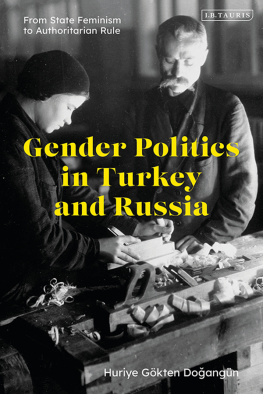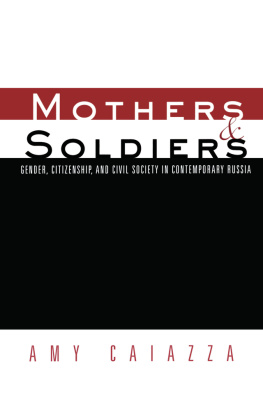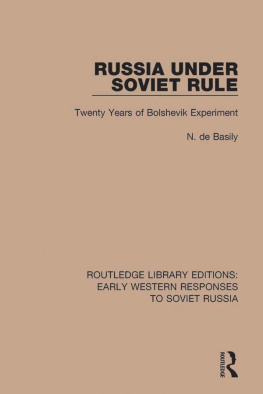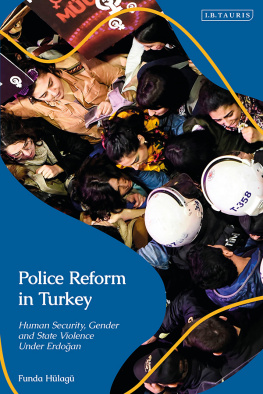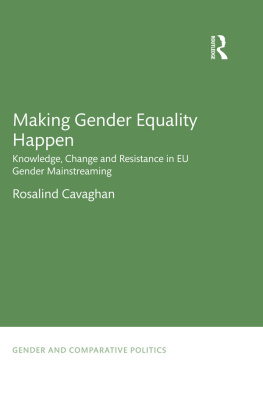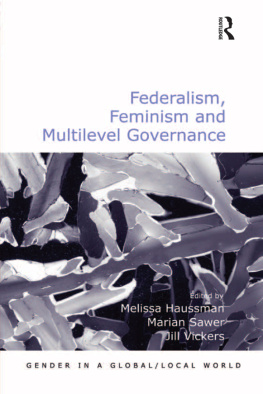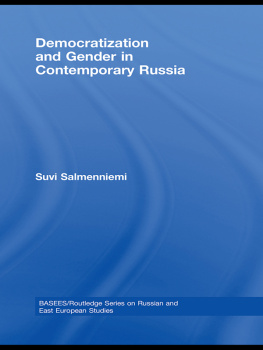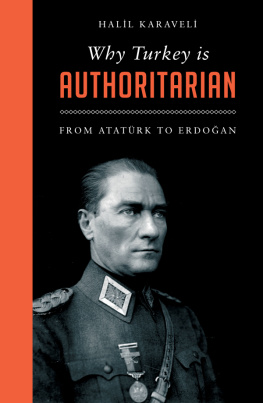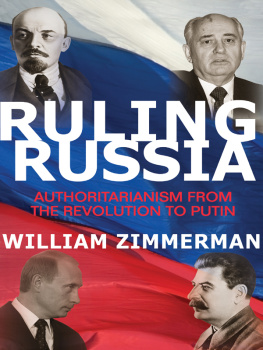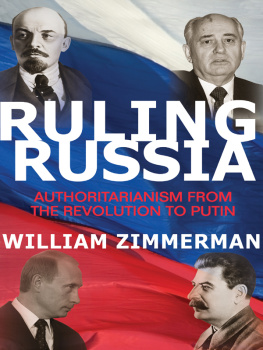Gender Politics in Turkey and Russia
Gender Politics in Turkey and Russia
From State Feminism to Authoritarian Rule
Huriye Gkten Doangn
To Bahadr, my beloved brother
| AKP | Justice and Development Party |
| ANNA | National Centre of Domestic Violence |
| CEDAW | Convention of All Forms of Discrimination Against Women |
| CPSU | Communist Party of the Soviet Union |
| EGIDA | Society for Promoting the Social Protection of Citizens |
| EU | European Union |
| Ka-Der | Association for the Support and Training of Women Candidates |
| KSGM | General Directorate of Womens Status |
| KSSGM | General Directorate of Womens Status and Problems |
| NGO | Non-Governmental Organization |
| NM | Violence Prevention and Monitoring Centres |
| UN | United Nations |
| UNDP | United Nations Development Programme |
| UNESCO | United Nations Educational, Scientific and Cultural Organization |
| UNFPA | United Nations Population Fund |
| USSR | Union of Soviet Socialist Republic |
My first encounter with the issue of gender equality in Russia took place when I went to Russia as an Erasmus exchange student to learn Russian. I was astonished to realize how Russian and Turkish women have similar problems despite these two countries having different cultural traditions and historical pasts. This experience drove me to think comparatively about the situation of gender equality in Russia and Turkey. In 2010, I had a chance to share and discuss my observations with significant scholars, whose fields of interest are gender in Russia and Russian politics at Michigan State University (MSU) in the United States, where I spent four months as a visiting scholar. Then, I decided to undertake comparative research on gender equality and examine the implications of the wider political context on womens equality, starting from the experience of state feminism in Russia and Turkey. At MSU, I carried out preliminary preparation, including a literature review and informal discussions with these scholars on developing my aim and arguments.
By the time I started my comparative research on gender equality in Russia and Turkey in 2010, there were gradual signs of authoritarianism and of a patriarchal revival (traditional values). The data pointing to the restoration of patriarchal gender order had not yet emerged. In the literature, the debate was gradually emerging but no one was quite sure. Something was changing but no one wanted to make strong claims. It was my observation/intuition that gradually emerging authoritarianism would have serious effects on gender equality. Unfortunately, I was not wrong and numerous data started to emerge while I was doing the literature review, collecting, analysing and writing empirical data, and even after finishing my research.
As the literature was already emerging, I decided to conduct expert interviews with the aim of acquiring an inside-out approach to examining the shift and its direction. Expert interviews have gained widespread acceptance in qualitative social research as a legitimate method of exploring and gathering information at the initial phase of research (see Bogner and Menz, 2009). As Meuser and Nagel propose, special knowledge, acquired through not only training and professional roles but also through privileged access to information granted by activity and possession of local knowledge embedded in the experts milieu, is the subject matter of the expert interview (2009, p.24). Expert interviews help researchers obtain useful information and elucidation of the issues under investigation (Bogner and Menz, 2009, p.47). I deeply utilized in-depth expert interviews to acquire academic and personal insights and observations about a newly emerging social reality. This field research was conducted with the financial support of the Middle East Technical University. A year that I spent at the Centre for Middle Eastern Studies at Harvard University as a visiting scholar also provided me with particular opportunities, including participating in numerous seminars about my research topic, meeting important scholars in the same field, using library facilities and presenting my research at different academic venues and collecting feedback, to enlarge my research and convert it into a book manuscript.
I would like to express my deepest gratitude to my supervisor and chair Professor Dr Aye Ayata for her guidance, advice, criticism, encouragement and insight throughout the research.
I would like to show my gratitude to Sophie Rudland from I.B. Tauris, who supported me from the very beginning for this production and shared her valuable comments at every stage of writing this book. I would also like to express my sincere thanks to anonymous referees for their important and contributory suggestions and comments.
I am also deeply indebted to my family Mjgan, Asm, and Bahadr who have always believed in and unconditionally supported my efforts during the whole of my academic life. Without their patience and, most valuably, their never-ending care and encouragement, blended with their love, this study could hardly have been realized.
This book could not be written without the unconditional support and help of my KORAcans, Yelda, Zelal, Sezin and Gzde, and Asuman. Their academic contribution and emotional support made this long journey easier and tolerable. They did not deny their patience and encouragement at each step. I owe my deepest love to them. Dear Olga and Gzel lent me a hand with translation and with doing research in Russian. With their help, my research was enriched. Finally, I owe my thanks to all the interviewees, who kindly agreed to give me an interview and contributed to my research.
In 1993, Huntington put forward a controversial thesis that the cultural and religious divisions between the different civilizations of the West and the rest of the world would be the new fault line for conflict in the post-Cold War period (Huntington, 1993). The clash of civilizations would be the main replacement of the ideological and economic sources of conflict that had constituted the core of the struggle between the two superpowers in the Cold War period. Huntingtons predictions are only half right, because his work dealt extensively with Islam and the Muslim world as the prospective competitor of Western civilization. He was right in foreseeing that the efforts of the West to promote its values of democracy and liberalism as universal values, to maintain its military predominance and to advance its economic interests engender countering responses from other civilizations, but he was mistaken in assuming that the reaction would come mainly from the Muslim world (p.29). It has recently been hybrid regimes, whether or not they are Muslim, which establish formal democratic institutions but fail to consolidate democratic norms and values, that compete with Western civilization. According to the latest Freedom House Survey (2018), in 2017 democracy was facing its most serious crisis in decades. The number of partly free countries had increased by 2017 from 33 to 63 while the number of unfree countries had risen from 42 in 1998 to 57 in 2017 (Freedom House Survey, 1998, 2018). These results show that the basic tenets of democracy, including the rule of law, free and fair elections, freedom of the press and of assembly, and the rights of minorities, are under serious attack in the world.

